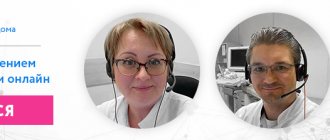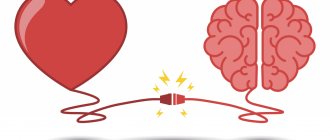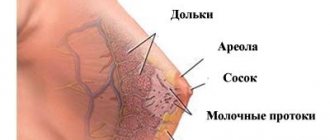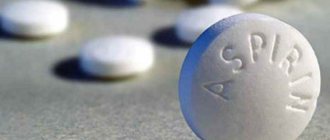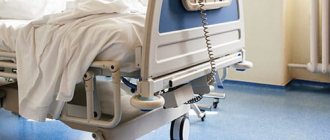Causes of nagging pain
When the heart is pulled, this condition is most often not acute. Serious life-threatening pathologies are usually accompanied by severe pain. Causes of heaviness in the heart area:
- physical activity (in fact, the discomfort is associated with a lack of liver glycogen, but the pain may be similar to heart pain);
- stress (neurogenic cardialgia);
- pathologies of internal organs.
If the pain arose as a reaction to stress or physical activity of a certain strength (and then disappeared), the condition does not require treatment. But sometimes discomfort during exercise occurs due to serious heart problems, so it is worth undergoing an examination in any case.
VSD and heart problems
The heart reacts to what is happening around before others. That is why, when something important and exciting is about to happen, we accompany it with the phrase “I feel it in my heart.” This vital organ is protected by a whole system of barricades, but sometimes the disease penetrates inside, as, for example, in the case of VSD.
What causes chest pain in people with VSD?
With such a diagnosis, the patient, without realizing it, draws attention to his heart. Everything that happens in the area of this organ is attributed to problems with it. How could it be otherwise if these reactions determine how you feel?! People who have been diagnosed with vegetative-vascular dystonia, every time there are interruptions in the work of the heart, are afraid that their life will end. It seems to many that the pain passes right through this organ, but in fact it is localized in the chest, on the left, or at the sternum. Some patients do not think about the fact that the problems may be far from “heart-related”. If it hurts on the left side of the chest, it’s the heart. It scares. Really, what else could hurt in this area? After all, our main organ is located here, and you feel the heart beating and the blood pulsating through the veins. The work of other “mechanisms” is hidden from us. For example, the process of secreting gastric juice.
Patients diagnosed with VSD are overly attentive to their own heart. They constantly calculate the pulse, measure blood pressure, and walk around with a blood pressure monitor. These people constantly come to do ECGs. They are not against carrying out newfangled procedures, just to calm their hearts, to find out where the dog is buried. But there is no benefit from this.
The cause of pain in the heart during VSD is not organic diseases of this organ, but a disruption of the autonomic nervous system, as a result of which the hormonal system begins to react incorrectly to what is happening in the body. It is likely that the numerous ECGs that were performed before reading this article convinced you that this is not a hidden myocardial infarction or similar diseases. All of them have cardiac symptoms, but here it’s different.
Pain during VSD, what is it like?
The pain that appears in the cardiac region can be different:
- Stabbing;
- Burning;
- Aching;
- Acute;
- Pressing;
- Compressive;
- cutting;
- Blunt;
- Constant;
- Periodic.
In addition to the fact that a person experiences pain, the heart rhythm is also disturbed. This could be arrhythmia, when the pulse is erratic, or tachycardia (the organ beats too quickly). In some cases, extrasystole occurs, that is, an extraordinary contraction of an organ, or cardiac arrest when it does not contract one or more times. Such changes cause fear of death in patients.
What is characteristic of pain in the heart area during VSD?
To understand that pain is caused by VSD and is not associated with any heart disease, it is important to know its distinctive features and characteristics. They consist in the fact that pain:
- Do not occur during physical exercise. A person feels discomfort after exercise.
- Appears with movement and stops at rest. If you observe that you have just such a case, then most likely it is myositis - a disease in which muscles become inflamed, or intercostal neuralgia.
- They do not disappear after taking drugs that dilate the heart vessels. Such medications include, for example, the well-known validol or nitroglycerin.
- They weaken as a result of the action of sedatives and tranquilizers. We are talking about phenazepam, Corvalol.
- They give rise to fear of death. It increases in proportion to the increase in pain.
the symptom of VSD in the form of heart pain is not confirmed by any examinations.
As a result of such activities, it is not possible to discover anything that would cause serious concern. Maximum - blockade of the Hiss bundle branches. Author: K.M.N., Academician of the Russian Academy of Medical Sciences M.A. Bobyr
Diseases that cause heart strain
Pathological causes of nagging pain in the heart area are both dangerous and frivolous. The most common diseases accompanied by this symptom:
- neurological pathologies: osteochondrosis, herniated intervertebral discs, scoliosis (compression of the nerve ending);
- diseases of the cardiovascular system - coronary heart disease, atherosclerosis, pericarditis, aortic aneurysm, pulmonary embolism, heart rhythm disturbances;
- pathologies of the digestive system - gastritis, pancreatitis, peptic ulcer (pain often appears against the background of hunger or just eaten food);
- neurocirculatory dystonia - combined with frequent dizziness;
- neurosis - pain appears against a background of stress due to an excess of catecholamines in the blood, against the background of which oxygen starvation of tissues occurs;
- diseases of the respiratory system - pneumonia, tuberculosis.
It is impossible to make a diagnosis on your own, so if you experience nagging pain in the heart area, you should consult a doctor. A comprehensive examination and accurate diagnosis will allow you to prescribe adequate treatment to relieve and prevent the occurrence of unpleasant symptoms.
Discomfort not related to the heart
The main physiological problems with similar symptoms are the following pathologies:
- Disorders in the musculoskeletal system - osteochondrosis of the cervical and thoracic spine, intercostal neuralgia associated with pinched nerve roots.
- Gastrointestinal diseases - ulcerative lesions, tumor formations of the stomach and esophagus, hernia, gallstones.
- Problems with the functionality of the respiratory system - inflammation of the lining of the lungs (pleura).
- Neurosis and panic attacks are emotional imbalances in the body associated with an acute experience of a stressful situation.
Determining whether the listed anomalies relate to cardiac disorders is helped by the addition of accompanying symptoms, which include deterioration of well-being without signs of shortness of breath, rapid pulse, and the spread of pain to the upper extremities, neck or face. It is important to remember what preceded the onset of discomfort, whether there was severe hypothermia or high physical activity before this.
Diagnostics
After an in-person examination, collection of anamnesis and communication with the patient, the doctor creates an examination plan. It includes:
- pulse measurements;
- blood pressure monitoring for 7–14 days;
- auscultation of the heart;
- neurological tests;
- general blood analysis;
- electrokariogram (ECG);
- Ultrasound of the heart (EchoCG);
- X-ray of the chest organs (survey and targeted when suspicious areas are detected);
- FGDS;
- MRI or CT scan with or without contrast agent;
- endoscopy;
- X-ray of the stomach with contrast;
- X-ray diagnostics or MRI of the spine.
Such an examination will create a complete picture of the disease. Based on the data obtained, treatment is prescribed.
Heart pathologies
Even with constant burning or pressing sensations in the chest, it is inappropriate to talk about diseases of the cardiovascular system. The most common anomaly that causes temporary pain is ischemic damage, the acute course of symptoms of which ends within a few minutes. The answer to the question whether the heart can hurt for days lies in previously diagnosed associated abnormalities. Thus, angina or ischemia occurs after excessive physical activity and subsides immediately after the onset of a period of rest. Taking medications containing nitroglycerin also indicates the presence of heart disease. In other cases, additional examination is required to identify the root cause of the discomfort.
Treatment
Depending on the diagnosis, adequate therapy is selected. Possible treatment:
- taking analgesics;
- antibiotic therapy for tuberculosis, pericarditis, peptic ulcer, bacterial pneumonia;
- tranquilizers for neurosis;
- antacids for gastritis and peptic ulcers;
- nootropics and antispasmodics for neurocirculatory dystonia;
- surgical treatment of herniated intervertebral discs, aortic aneurysm;
- nitroglycerin for an attack of coronary heart disease;
- motherwort or valerian for stress;
- non-steroidal anti-inflammatory drugs for pericarditis.
The causes of nagging pain do not always have serious consequences. But this condition itself is unpleasant, so it is worth visiting a doctor to prescribe adequate therapy.
Read also: My heart aches
Dear patients! Remember that only a qualified doctor can make an accurate diagnosis, determine the causes and nature of the disease, and prescribe effective treatment. You can make an appointment with our specialists or call a doctor at home by calling 8-(4822)-33-00-33
Be healthy and happy!
How to act
Shortness of breath, a feeling of lack of air and all this against the background of heaviness in the heart are serious symptoms that cannot be ignored. Only the reaction must be correct so that an already dangerous situation does not get worse. This condition often causes panic, which only aggravates the situation and interferes with making the right decisions. We have prepared a list of actions that should be taken in such a situation:
- Calling an ambulance is the first thing to do in case of such symptoms. You should not waste time and hope to eliminate unpleasant sensations on your own. The reason for this feeling can be so dangerous that a person’s life is at risk.
- While the ambulance is getting there, you need to free yourself from tight clothes and try to relax.
- If you have medications that were previously prescribed by a specialist, you must take the medicine. For example, with stable angina pectoris, nitroglycerin is taken, which will help cope with the attack and relieve symptoms.
- Breathing should be uniform and calm; you should not give in to panic.
Is it worth contacting a specialist?
Contacting a specialist is a mandatory measure if such symptoms occur. There are no other options here and cannot be. This is due to a large number of diseases (some of them are extremely dangerous and even fatal), which can provoke a feeling of heaviness in the heart. Only he can determine the true cause of such attacks. Even if it was single and short-lived. Each subsequent attack can be fatal.
Heaviness in the heart can be caused by pathologies developing in various organs and systems. This circumstance complicates the process of identifying the cause. Initially, you need to contact a therapist, who, based on complaints and examination, will be able to write a referral to the right specialist. Although it would be correct to undergo a full examination.
You need to treat your health carefully and responsibly. Our body sends signals that indicate problems. Some of which pose a serious danger to the body and are even life-threatening. You need to respond to every signal; in this case, you can eliminate the problem at an early stage and, perhaps, avoid complications. Everyone is primarily responsible for life and health.
